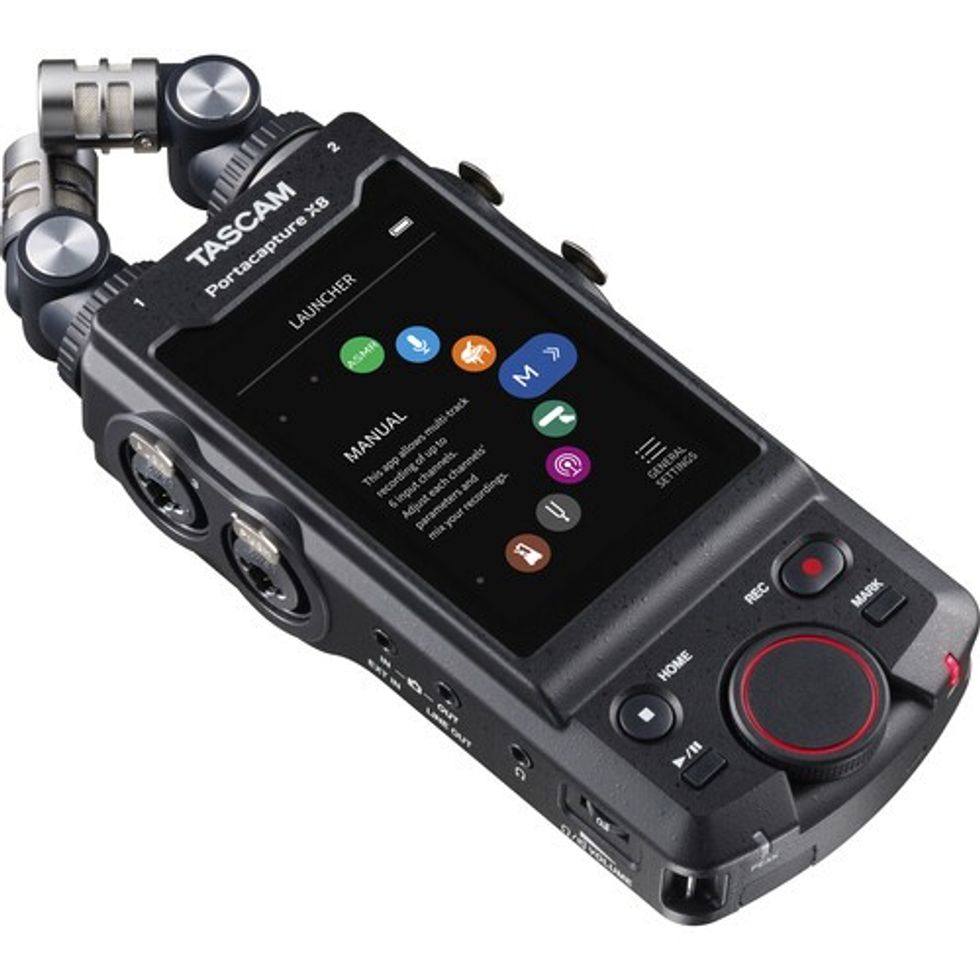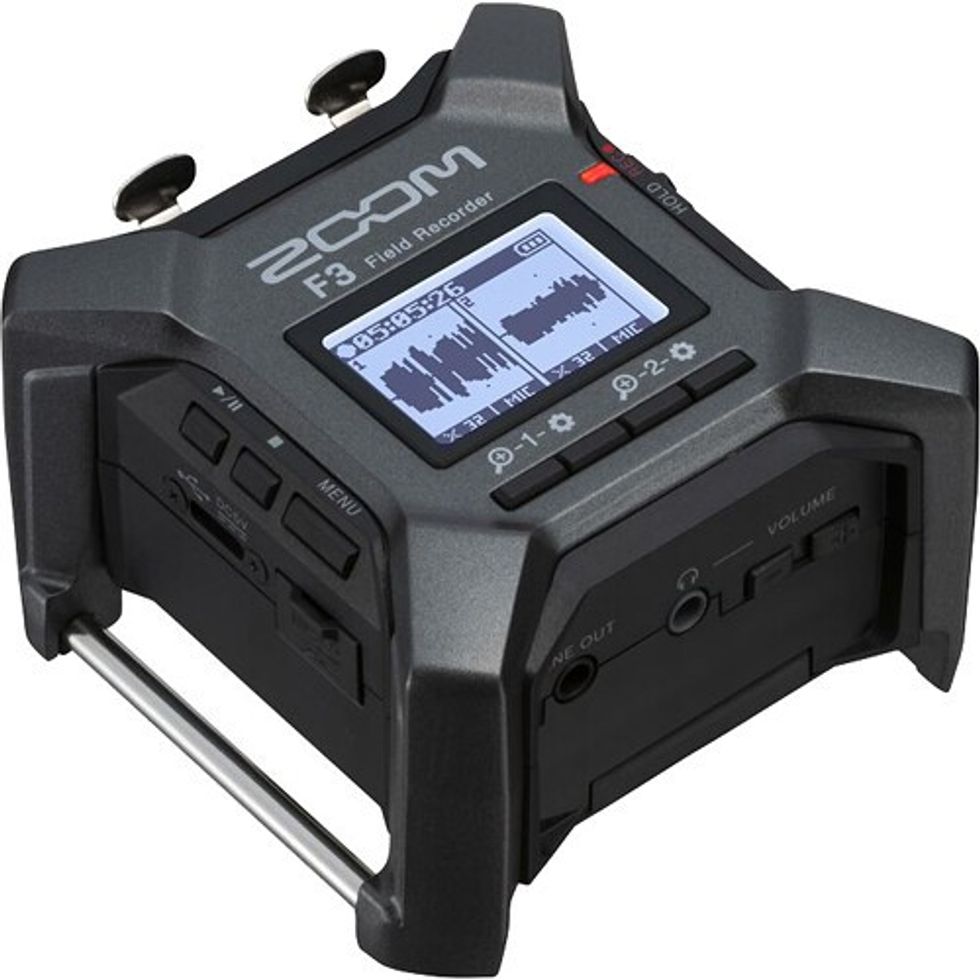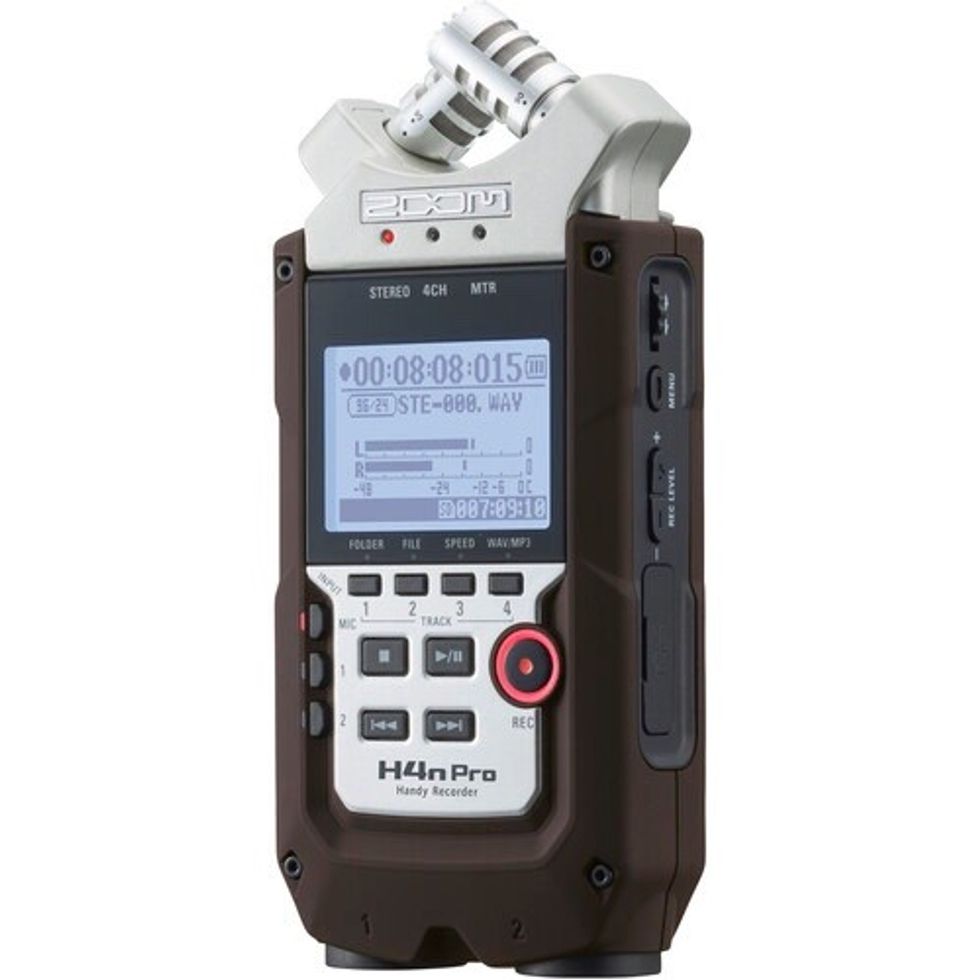
Even shooting on a $80,000 camera won’t save your project when you have bad audio. However, if you shoot on a terrible camera but have fantastic audio, you’ll probably get a round of applause from all the arthouse folks.
Suffice it to say, getting clean and crisp audio is the most important thing you can do for your project.
For this “Deals of the Week,” we discovered different audio tools on sale for varying needs.
Which one will you need for your next project?
Handheld Audio Recorder
The handheld audio recorder with a built-in mic has been a popular solution for on-the-go filmmakers and those on a budget. Not only are they great for capturing audio on set form different sources, but you can even take these units and use them in post for foley, ADR, and temp audio.
TASCAM Portacapture X8 Field Recorder

With its large touchscreen, detachable mics, 32-bit float resolution to avoid clipping, and tailored modes for music, field, podcast, and voice recording applications, the TASCAM Portacapture X8 portable handheld multitrack recorder makes it incredibly easy to capture up to six individual tracks of high-resolution audio for common production scenarios.
Portable Field Recorder
This next form factor is a bit more “stay in one place” than handheld. While creatives can still lug it around as a portable recorder, it feels more at home in a sound bag or on your camera rig. What makes these types of units more appealing is that they usually come with more robust features and are better at being integrated into your existing toolkit.
Zoom F3 Portable Field Recorder

Two premium mic preamps and 32-bit float technology make the F3 a powerful little tool. It can capture the softest and loudest sounds you can throw at it, all while avoiding distortion, maintaining low-noise performance, and freeing you from the responsibility of adjusting gain. Two balanced mic/line inputs with locking XLR jacks and switchable +48V phantom power make the F3 an ideal match for professional microphones
Wireless Microphone Systems
The clip-on lavaliere system has evolved a bit in the past few years. From thin wires and little mics that you hide behind your clothes, newer audio systems do away with wires altogether and want you to proudly wear the microphone for all to see. These types of tools are perfect for quick interviews, broadcast, or other fast-paced documentary projects.
Hollyland LARK M1 Wireless Mic System

Record up to two people in mobile journalism or content creation applications using this black, 2.4 GHz LARK M1 DUO Wireless Microphone System from Hollyland. The system includes two transmitters with built-in, omnidirectional microphones, a dual-channel receiver, and a charging case—all with a compact form factor. Clips on the back of each transmitter allow you to attach them to the lapel of a shirt.
A Reliable Classic (Honorable Mention)
This handheld recorder from Zoom probably isn’t something you’d want in your kit, as it’s a few years older than the other units on this list. But remember how I said you can use these types of recorders for practically anything? Well, this was the recorder I used for over a decade. I still have it in my gear closet, and it works just as well as it did before. Sure, it doesn’t have 32-bit float recording, but it’s built like a tank, and it hasn’t let me down yet.
I recorded everything from live production, musical theater, foley, ADR, and on-set audio with this recorder.
Zoom H4n Pro Handheld Recorder

Ideal for guitarists, bassists, and vocalists looking to produce studio-quality tracks on a single travel-friendly device, the brown Zoom H4n Portable Handheld Recorder with Onboard Stereo Microphone Capsule and versatile mic/line/instrument inputs lets you record up to four tracks of high-resolution audio in the palm of your hand.
Author: Sponsored Content
This article comes from No Film School and can be read on the original site.
